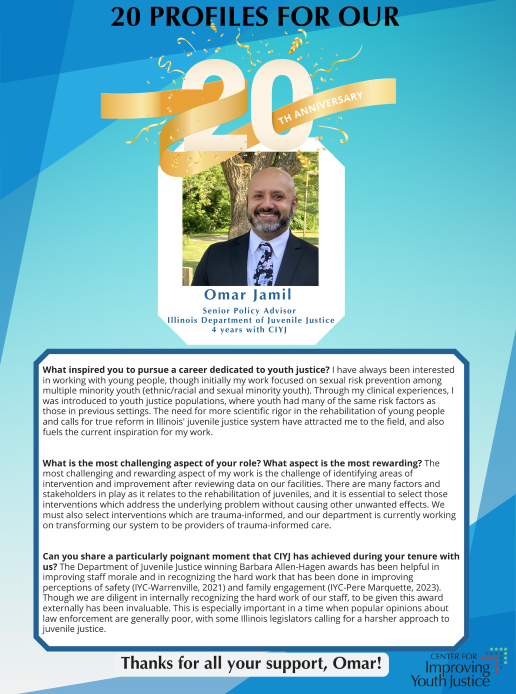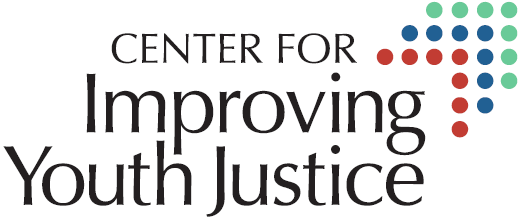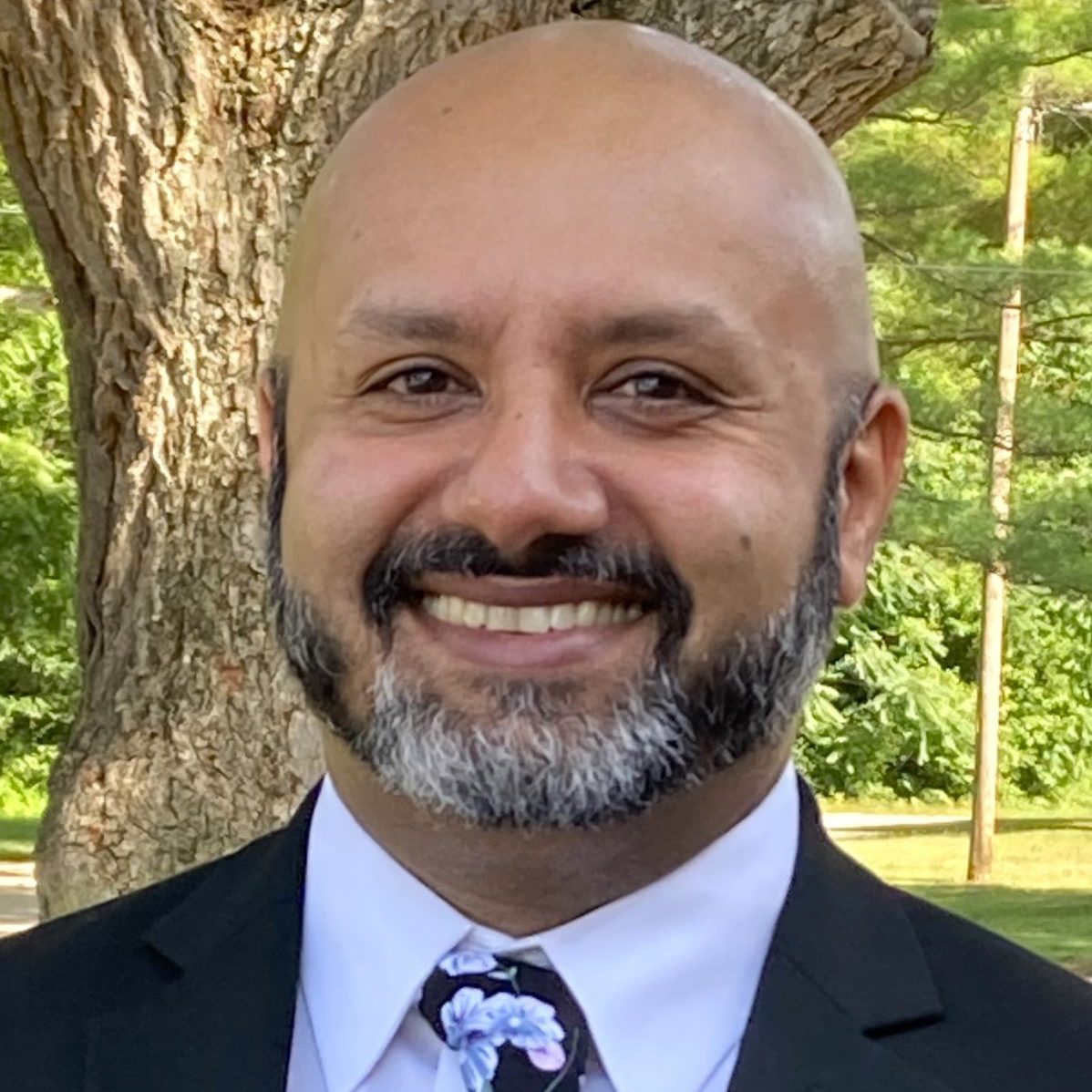
- Preferred Name, Title, and How Many Years You’ve Worked with CIYJ? Omar Jamil, Senior Policy Advisor, Illinois Department of Juvenile Justice, working with CIYJ (and IDJJ) for 4.5 years.
- What is the most challenging aspect of your role? What aspect is the most rewarding? The most challenging and rewarding aspect of my work is the challenge of identifying areas of intervention and improvement after reviewing data on our facilities. There are many factors and stakeholders in play as it relates to the rehabilitation of juveniles, and it is essential to select those interventions which address the underlying problem without causing other unwanted effects. We must also select interventions which are trauma-informed, and our department is currently working on transforming our system to be providers of trauma-informed care.
- Looking back over the past two decades, what do you consider to be CIYJ’s most impactful contributions to the youth justice space? CIYJ has helped establish standards within juvenile justice settings, which help other facilities understand trends in the rehabilitation of juveniles and has also helped equip jurisdictions with supports to improve youth outcomes.
- Can you share a particularly poignant success story, milestone, or impactful moment that CIYJ has achieved during your tenure with us? The Department of Juvenile Justice winning Barbara Allen-Hagen awards has been helpful in improving staff morale and in recognizing the hard work that has been done in improving perceptions of safety (IYC-Warrenville, 2021) and family engagement (IYC-Pere Marquette, 2023). Though we are diligent in internally recognizing the hard work of our staff, to be given this award externally has been invaluable. This is especially important in a time when popular opinions about law enforcement are generally poor, with some Illinois legislators calling for a harsher approach to juvenile justice.
- What message would you like to convey to our supporters, partners, and advocates as CIYJ celebrates this significant anniversary? Keep up the great work! And keep pushing the juvenile justice system to improve the standards of care that we provide to our youth.
- What inspired you to pursue a career dedicated to youth justice? I have always been interested in working with young people, though initially my work focused on sexual risk prevention among multiple minority youth (ethnic/racial and sexual minority youth). Through my clinical experiences, I was introduced to youth justice populations, where youth had many of the same risk factors as those in previous settings. The need for more scientific rigor in the rehabilitation of young people and calls for true reform in Illinois’ juvenile justice system have attracted me to the field, and also fuels the current inspiration for my work.

